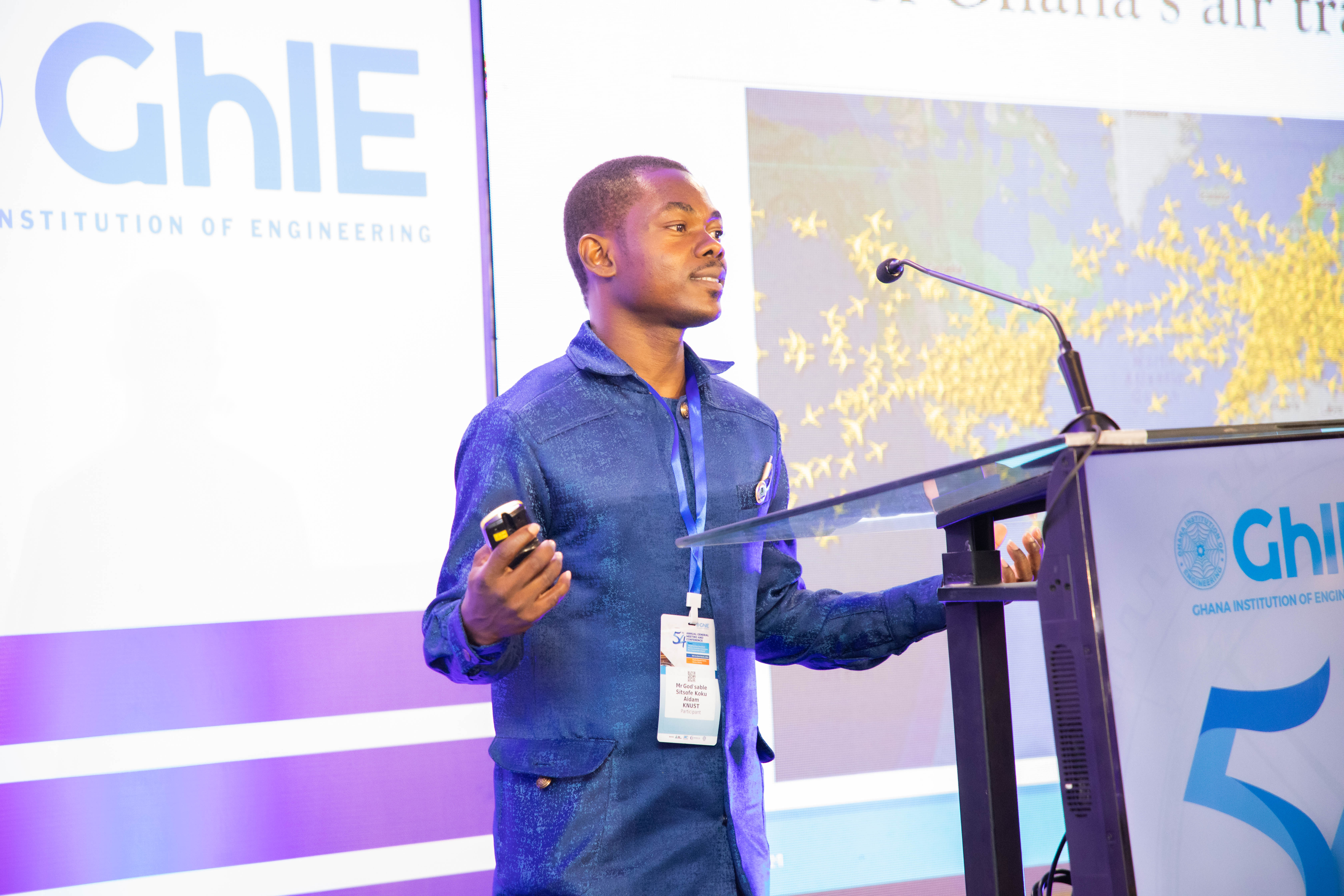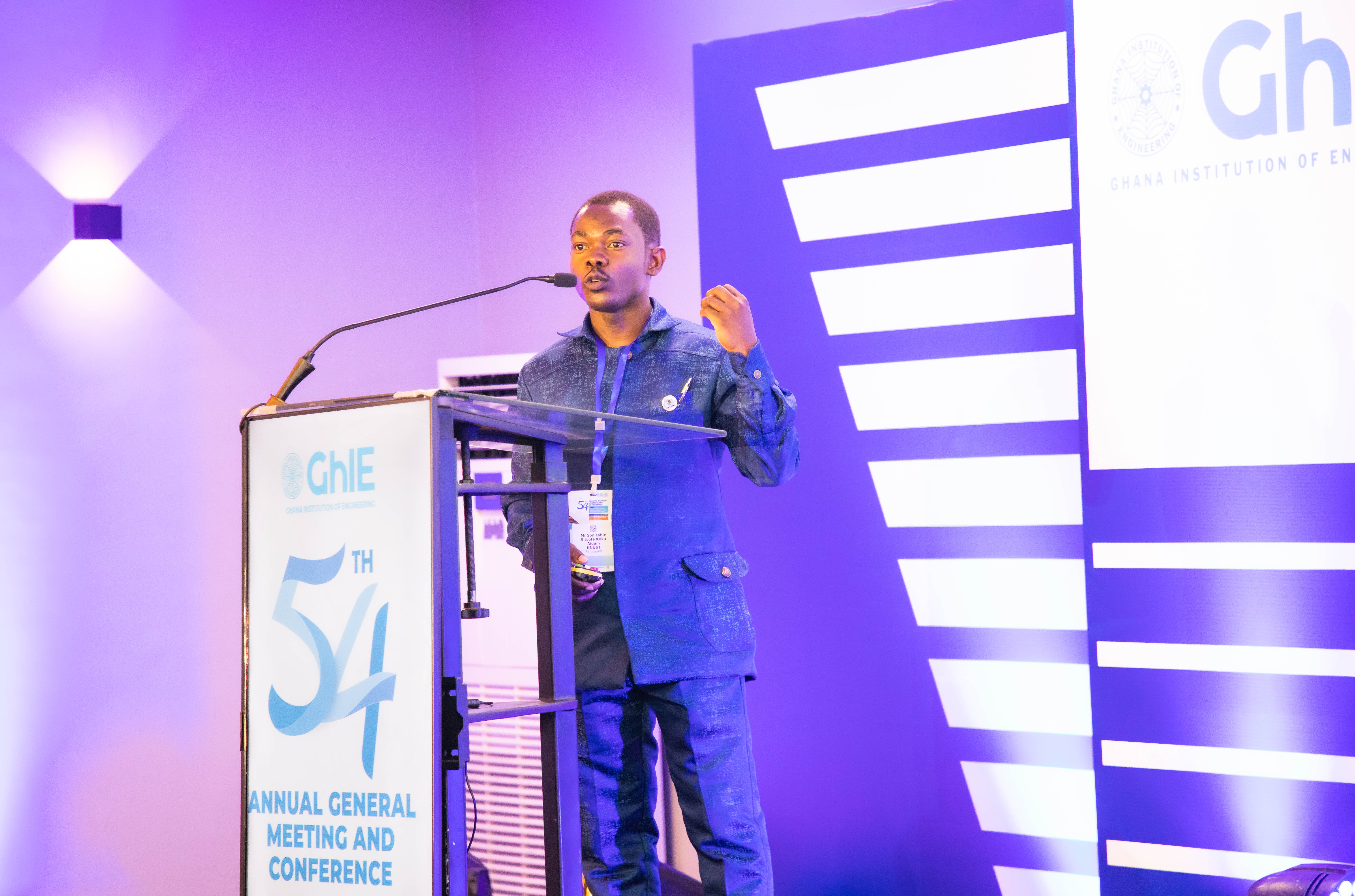KEEP NEWS
God’sable Aidam, A KEEP Scholar, advocates for Sustainable Aviation Technologies
Published: 23 Mar 2024

God’sable S.K. Aidam giving his presentation.
At the Ghana Institution of Engineering (GhIE) 54th Annual General Meeting and Conference themed, “Engineering a Resilient Future: Innovative Solutions for a Sustainable Ghana”, God’sable S.K. Aidam, a PhD Mechanical Engineering Candidate at the Department of Mechanical Engineering, KNUST and a KNUST Engineering Education Project (KEEP) Scholar, presented on Ghana’s electric vehicle (EV) policy as a pathway to aviation industry decarbonisation.
He highlighted the transformative impact of EVs in aviation and the potential of EV adoption in ground operations, emphasising the need for a robust charging infrastructure. He asserted that electric vehicles are the future of aviation, with no emissions during flights, promoting good air quality and higher operational efficiency.
Drawing insights from global case studies, he underscored the feasibility and benefits of EV adoption in the aviation industry with examples of airlines practising aviation decarbonisation through electric vehicles. He referenced Delta Airlines’ $386 million investment in electrified Ground Support Equipment (GSE) and airport infrastructure as part of its plan to enhance sustainability across its operations and He Loganair, UK’s attainment of an all-electric aircraft turnaround as part of its efforts to decarbonise ground operations

Highlighting the direct impact of leveraging Ghana’s EV policy for the aviation industry’s decarbonisation, he said the policy will help reduce ground emissions, improve infrastructure synergies and enhance sustainability practices.
He mentioned high initial cost, battery concerns, lack of charging infrastructure, and awareness gaps as challenges in implementing Ghana’s EV policy.
In considering the way forward, he said a feasibility study in collaboration with industry experts, academia and stakeholders must be conducted. Also, planning for infrastructure requirements and maintenance cycle is needed with strategic implementation of charging stations at vantage points based on traffic patterns, regulations and available operational space.
He intimated that collaboration between the government and stakeholders should be strengthened to ensure the successful integration of EVs into Ghana's aviation, aligning with global trends for a sustainable and environmentally friendly aviation sector.
“The National EV Policy should, therefore, be actively implemented, fostering a phased transition to EVs in the transportation sector to achieve emission reduction goals by 2045.”
